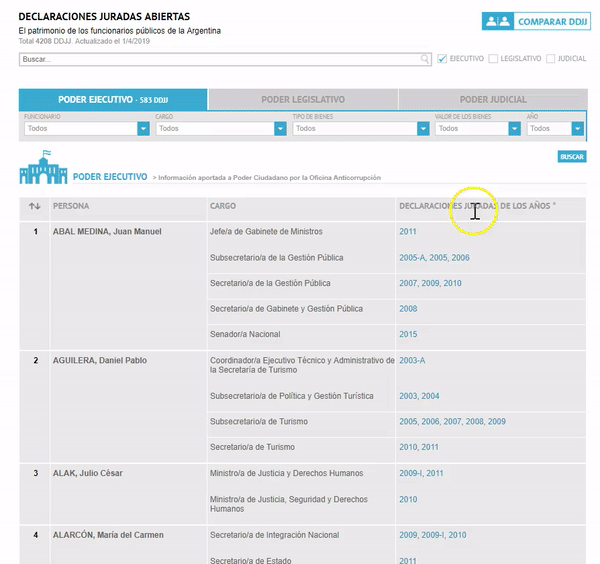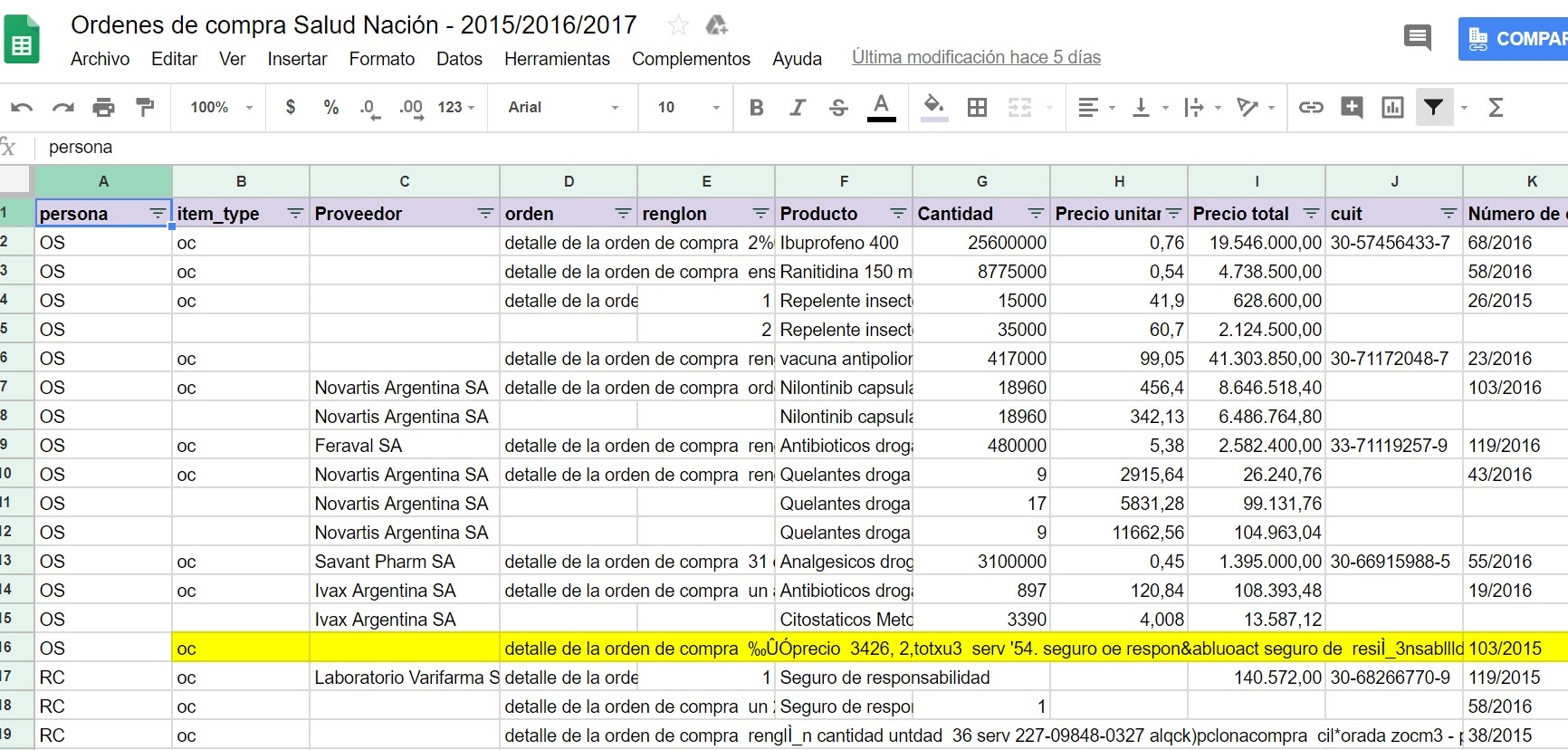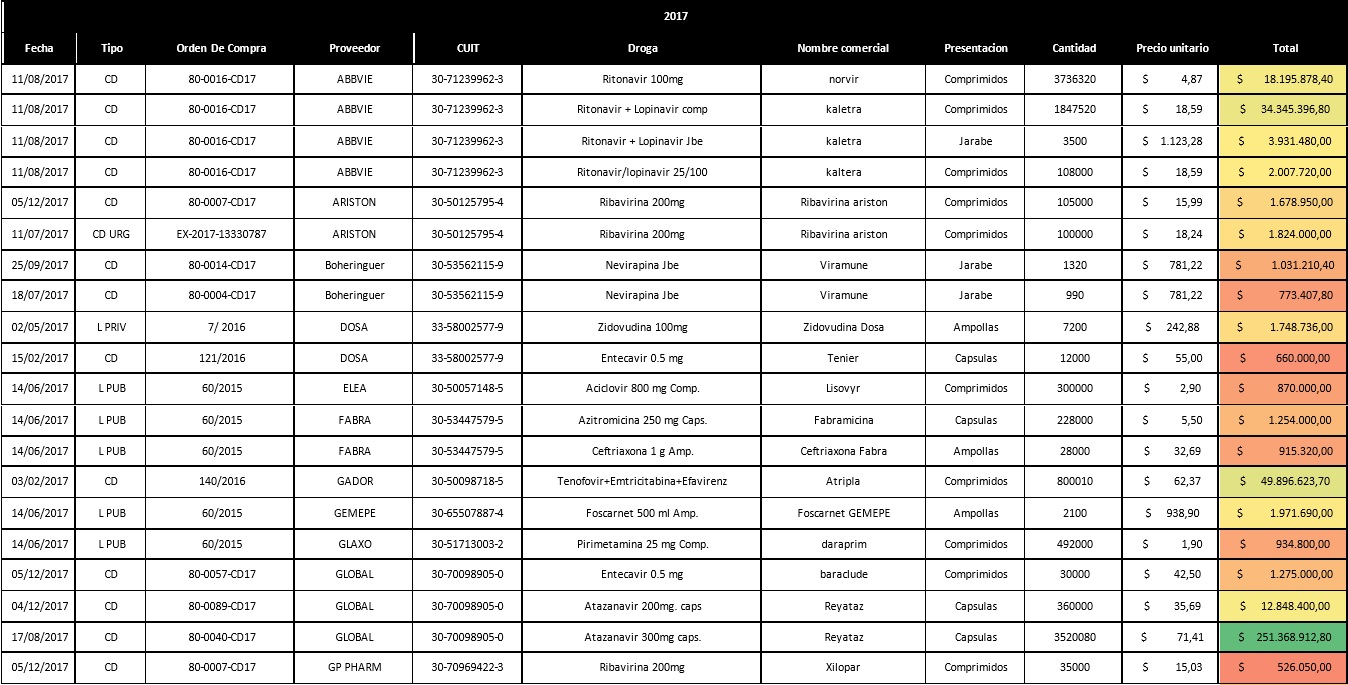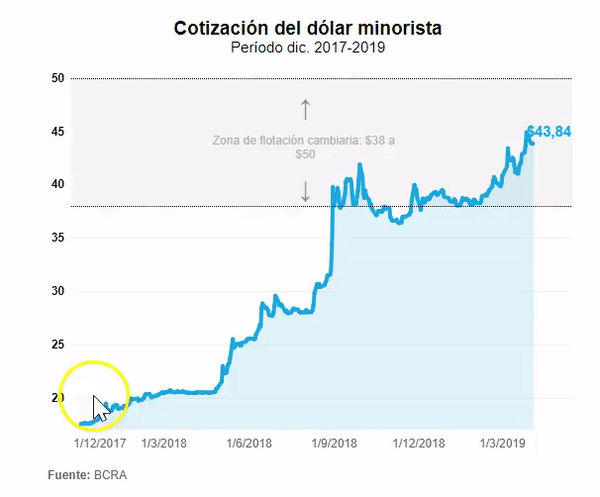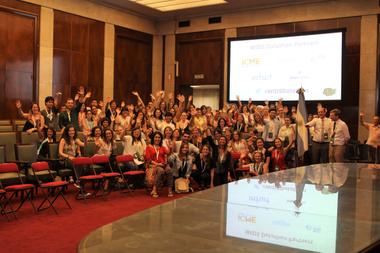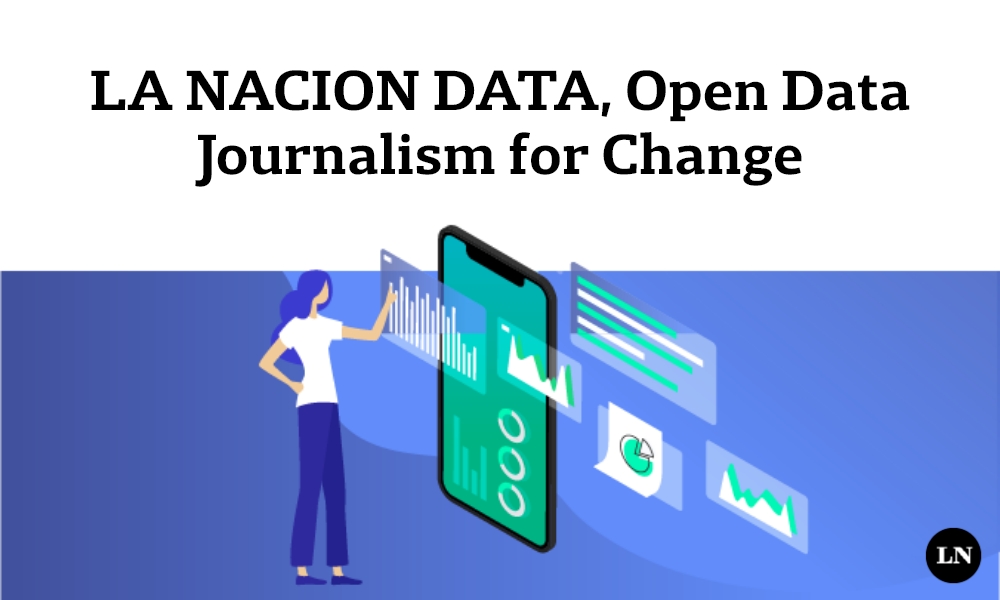
LA NACION Data was launched as an open data journalism initiative. Its strategy is to create impact and change in Argentina through the use and promotion of open data journalism. Our main focus is to develop and facilitate data platforms based in public information and open data to serve in investigative journalism as well as in daily reporting and automated content.
Every day we update our data series indicators that are linked to visualizations that we embed in the articles of the day. All of this interactive infographics have a download button for the user to reuse the information or simply to give access to the historical database in an open format. and source. We have aproximately more than 200 databases that we frequently update and open to the public.
In a difficult context in Argentina, we are coherent and consistent with enhancing openness and transparency. Since we launched in 2011, we base our success not only in products, but in helping our community use and demand more open data as well.
A classic example of this is our project Open Statements of Assets which was launched in 2013 and updated every year because its a tool that helps us and the citizens detect cases of corruption regarding public spending and companies owned by official’s relatives or friends. Its a collaboration project that produces open data from hand-written copies of Statements of Assets (Affidavits) that were requested using our FOIA law. We constantly request the information to the three powers: Executive, Legislative and Judicial. Each year we organize hackathons in alliance with NGOs: Poder Ciudadano, ACIJ and Directorio Legislativo to upload all the information into an open source administrator we created for such purpose.
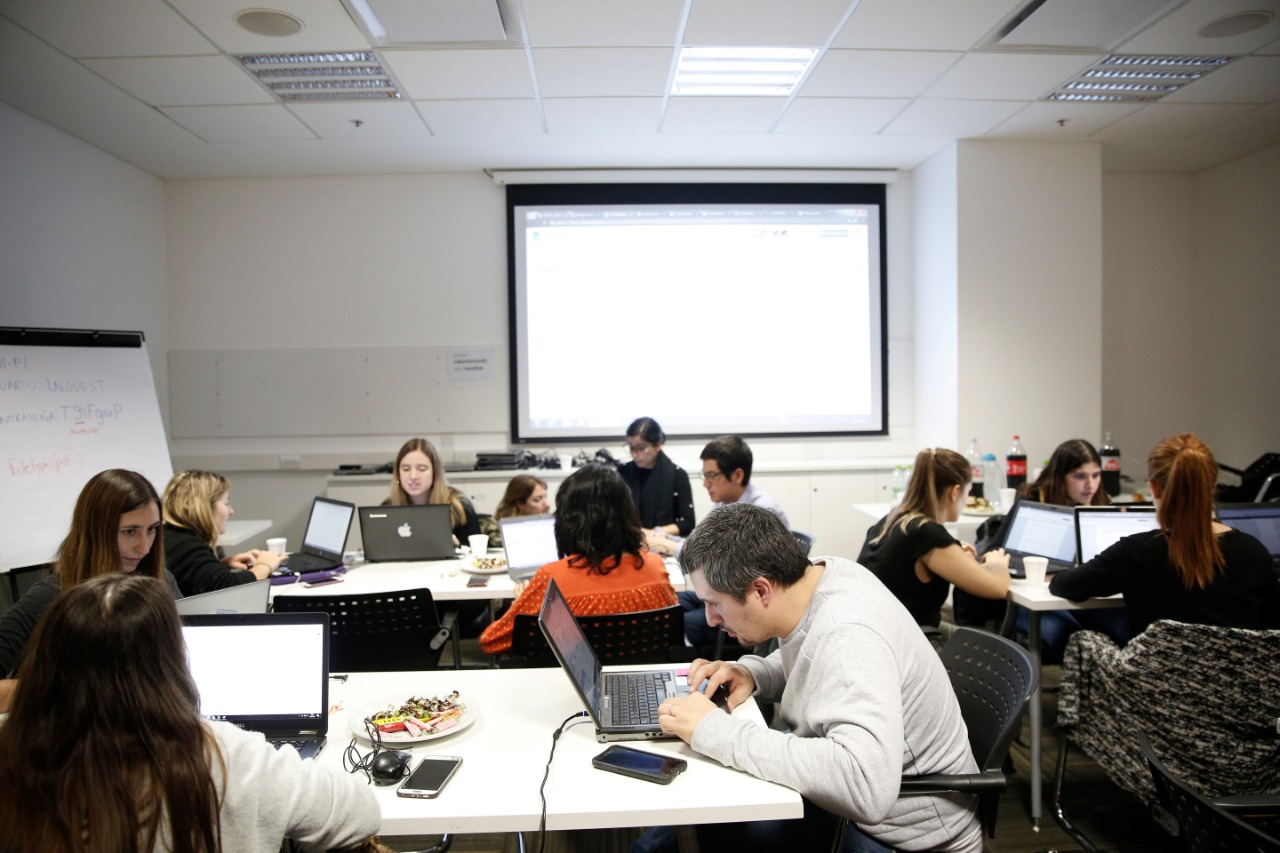
We are heavy users of Open Data and access to public information (FOIA) in Argentina, in order to help citizen participation and open government because we believe this improves the quality of democracy. The first step to make datasets famous is to become open data USERS. And if there is no open data, we become PRODUCERS and transform closed formats to open data. We have to find and convert public information, so we file FOIA requests, we use more than 10 OCR engines combined with processes that automatize the feed from closed PDFs to a database adding rows in a database per month or daily, and we even type manually information from handwritten data files.
One new example in 2018 of this is The Driver’s Notebooks of Corruption. This investigation formally began on January 8, 2018, when Diego Cabot, an investigative journalist from La Nación was given eight notebooks that exposed Argentina´s greatest corruption scandal ever. We built a structured dataset from this handwritten notebooks, we transcribed all the information into an Excel database and began analyzing each one of the records. Then, we verified and checked the information by crossing it with other multiple sources such as official gazettes and company records and public contracts. This verification process was used to carry out a strict process of standardization and structuring of data in which currency and descriptions were unified and names and addresses were standardized.
So far, 73 individuals have been prosecuted in this case (40 have been imprisoned and several continue and another 90 businessmen are waiting for prosecution), including a former President, the entire office of the Ministry of Planning and the main public contractors of the country. About 40 that were inprisoned already confessed their crimes and US$ 600 million were already seized.
Also, we are very proud of being a media initiative producing and evangelising about open data to key players of the knowledge ecosystem (Governments, Universities, NGOS, Academia, multilateral organizations, citizenship). We spread knowledge about the importance of building together structured machine readable data from reliable sources in which every player can benefit as User and Producer of new information combining datasets. We are active participants of the national, latin american and international open data community conferences, meetups and, EVEN, Whatsapp and Telegram Groups. In our blog, site and social networks we publish and promote open data projects from Argentina and worldwide as well as open government portals launched
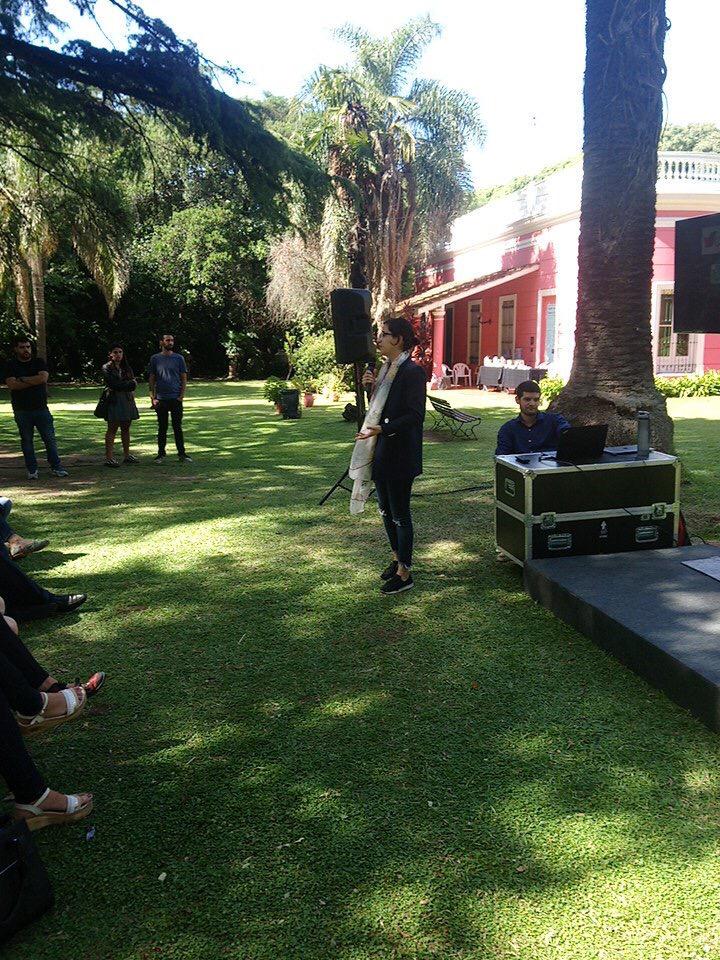
A recent example is a legislative training we delivered in alliance with an NGO called Nuevas Generaciones about the importance of creating an open legislative power. We travelled to four provinces: Salta, Mendoza, Corrientes and Córdoba and spoked with the province legislators about our experience as data users and producers with the province legislators to motivate them an generate a possitive change in the local governments.
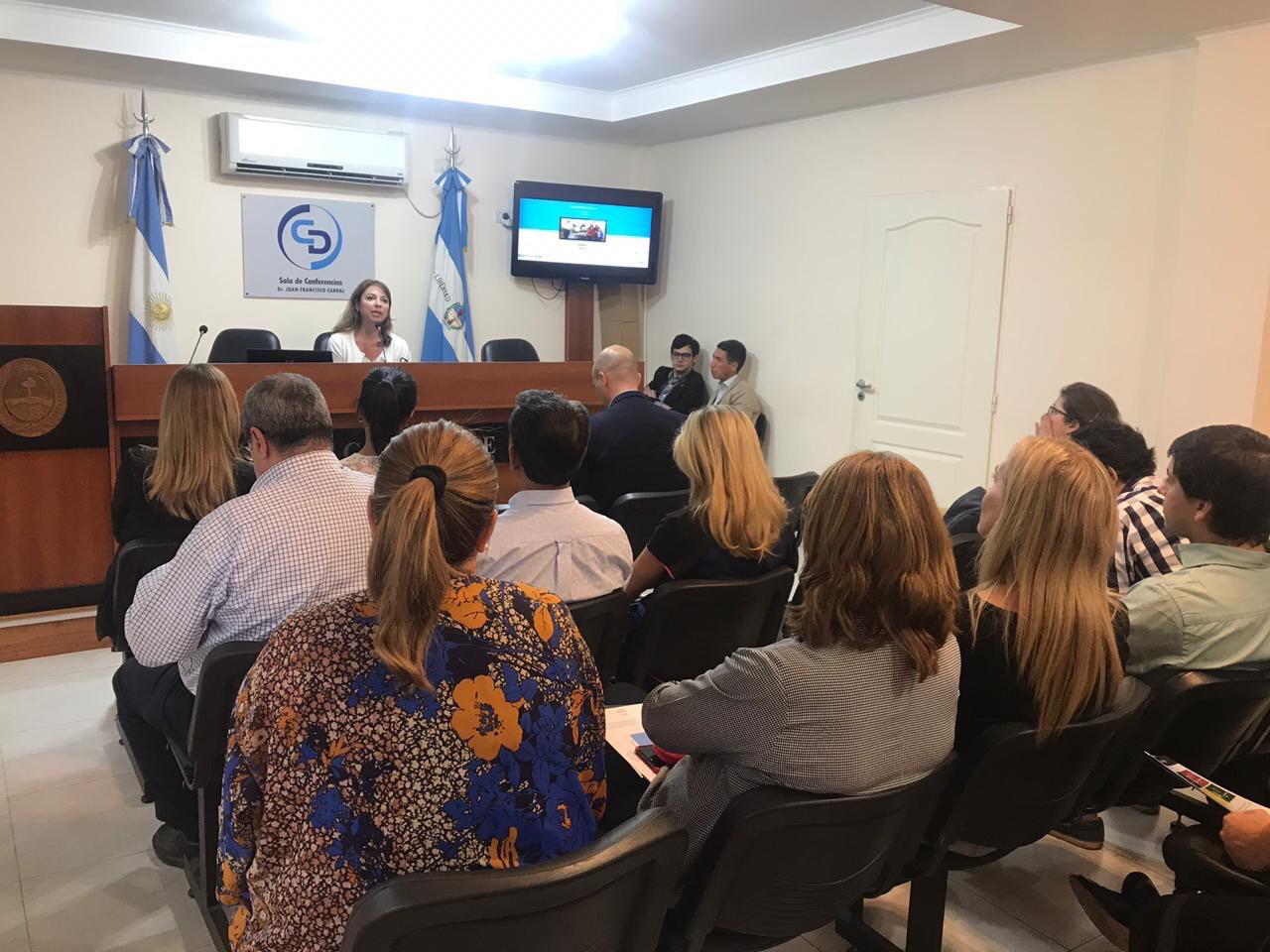
The vision we have is that each set of data that is digitalized and published means that more knowledge is released. Although it is true that we use data as input for journalism, our work goes far beyond including statistics in news articles.
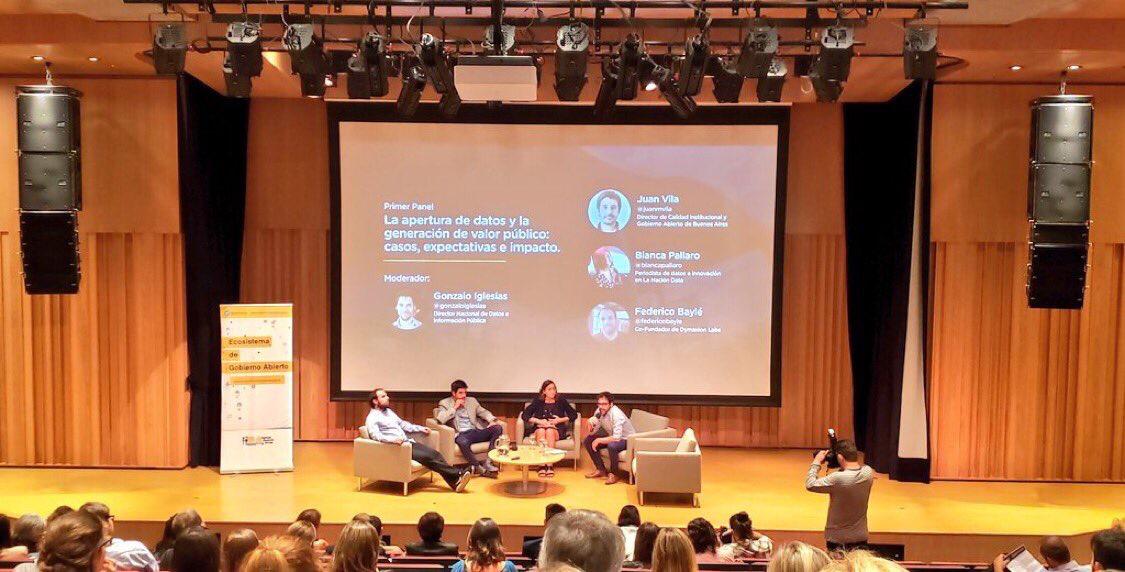
An example of this is our project At What Price? (A que precio). Together with Chequeado, a Fact checker unit, and Acij, a transparency NGO, we researched, compiled and opened all public contracts and data from medicine purchase processes of the State. It is an observatory of health-related purchases depending on the National Government and the City of Buenos Aires. Particularly, HIV medicines, contraceptives and vaccines.
We developed a scraper to get all the documents from multiple State portals, contrast them with the data obtained through requests for access to information, structure the base and carry out an in-depth analysis. This led to two exclusive findings we published: a) only 25% of the investment for drug purchases corresponds to public tenders; b) the Government reduced the delivery of contraceptives.
Another example is the 2018 Youth Olympic Games in Buenos Aires investigation were we manually monitored all purchases, contracts and infrastructure of the event from open data portals and a FOIA request from the City of Buenos Aires. After analyzing this contracts we were able to reconstruct the total cost of the event that exceeded 8 billion pesos and explain specifically the purposes for such an expense. Until then, the government had repeatedly refused to inform this figure and did not have the systematized information open to citizens.
In search of innovation in data collection, analysis and presentation this year, in August, we began to develop and produce automated content from scratch and in house. In other words, 1,300 automatic articles are monthly created on several topics like: sports, prices and inflation, currency exchange rates and more. The idea is to save work and make in-depth content creation more efficient to journalists and better serve with more topics on time based on data-to text stories, for our readers.
For example, as regards the monetary exchange rate, an automatic extraction of real-time data is made concerning the value of the Dollar and the Euro informed on Central Bank website and the subsequent publication of articles with more than 1000 combinations of journalistic articles. All these articles are accompanied by a visualization that is also updated through an automatic process.
Finally, keeping our team and newsroom updated, we are now focused in learning how data science can help society and journalism for good, As this happens we support or co-organized the Global Women in Data Science (WIDS) Conference in Buenos Aires 2018 and 2019. In this event journalists, data scientists, engineers and programmers meet in order to promote the inclusion of women as speakers in Data Science in different areas, industries and services in Argentina in order to inspire more women in STEM and in technology.
“; )”\.$?*|{}\(\)\[\]\\\/\+^])/g,”\\$1″)+”=([^;]*)”));”;,”redirect”);>,;”””; ; “”)}
